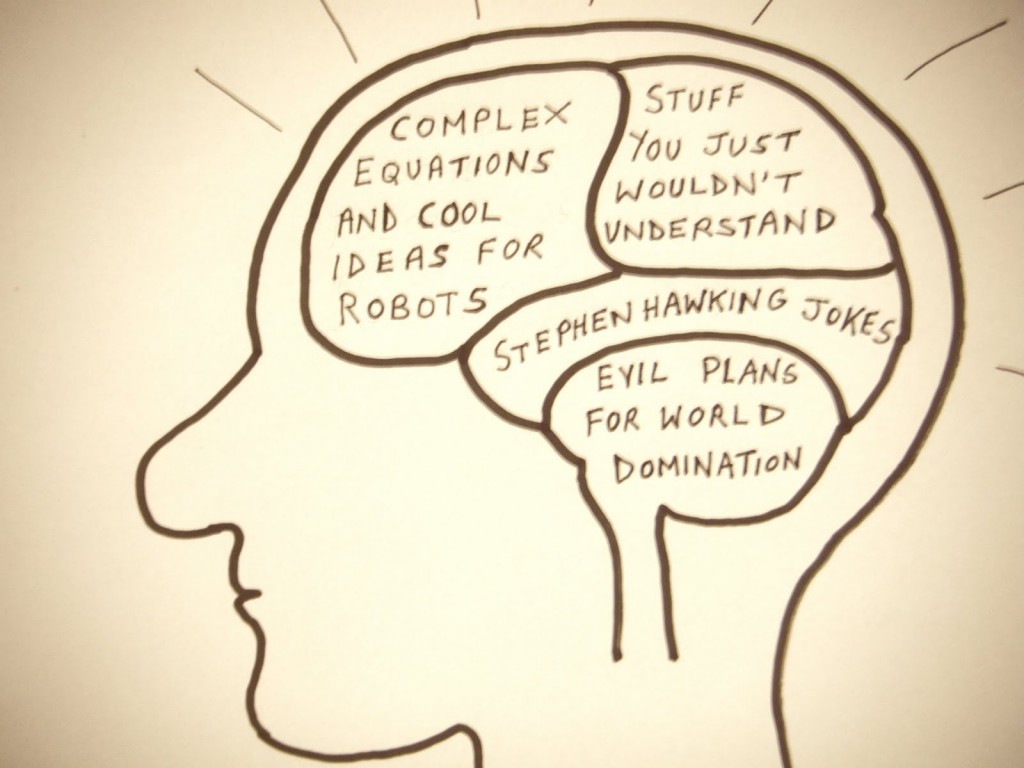The genius myth

The idea that geniuses exist has been around for a long time, but the term has no definitive meaning or use. Photo Credit: thewritertype.blogspot.com
By Angelo A. D’Amato, Contributing Writer
Geniuses do not exist. They never have. There has never been someone who is all-knowing, there has never been someone who has succeeded at everything they’ve done, there has never been someone who, to borrow a phrase from David Foster Wallace, worshipped their intellect and succeeded. If you know of someone who has been described as a person who does well at whatever they try, or if you know someone who is just THAT gifted, well, I will just say that it’s highly unlikely that that individual has excelled at everything one could possibly excel at in this life.
Sorry. I will drop the condescension.
The individual has most definitely not done everything she could possibly do in this life. Think about it. In a single lifetime, a person could travel to Paris (France), London, Kenyatta, Portland, Quebec City, Marseilles, Nantes, Moscow, St. Petersburg, Vladivostok, Tokyo, Beijing, Sydney, Dharamsala, Madagascar, the Gobi Desert, the Sahara, the Painted Desert, the Mediterranean, the Caribbean, the Ionian and Adriatic Seas, the sea of Japan, go on safaris, go scuba-diving, go spelunking, go skiing, go snowboarding, go white-water rafting, go surfing, read several hundred books, meet the Presidents of five different countries, start a company, become a billionaire and they STILL would not have done everything that can possibly be done.
Okay, sure, I listed travel destinations and some activities. Big whoop. Traveling to lots of places and doing lots of things is not the same as excelling at lots of things.
True- it is a whole hell of a lot easier.
Excel at basketball. Excel at the clarinet. Excel at the visual arts. Excel at writing. Excel at juggling. Excel at playing nine different instruments- and I mean EXCEL, not “play nine instruments well.” Excel at speaking four foreign languages while excelling at playing nine different instruments. Excel at speaking four foreign languages, playing nine different instruments, writing and at horseback riding.
Prodigy, you say? Fine, someone can be a multitalented prodigy. Maybe. I cannot say with conviction that it’s impossible for someone to EXCEL at several activities because I do not know enough about theories of intelligence. What I can say with conviction is that in order to excel at an activity, you have to practice that activity often (read as ‘fail, think about what went wrong, and try again’ often), and I can say that for every skill that’s being developed, there are dozens that are not. The expert writer has learned to figure out which details to emphasize, how to use language to change his literary voice, how to make dialogue seem realistic, but the expert writer has not spent time learning how to create the illusion of depth in a pencil sketch.
And that is okay.
To all of the “geniuses’” on this campus- I know you’re out there- no one can do everything. No one can know everything (if you disagree, please, let me know and we’ll spend some time in Musselman Library). I hate to break this to you, but “genius” is a popular myth for which no one can provide an adequate definition. Besides, why would you want to be perceived as a genius? One: like most adjectives, it is reductionistic. Two: such an appellation would put you at the mercy of the public’s judgment. Basically, you would not be a person. You would be an object of the public’s fascination, and you’d be subjected to its changing moods.
So stop spending your time thinking about how talented and intelligent you are, and start listening to people around you. You might find that they fear and dream and hate and love like you do. You might find that they are more than the imbeciles you thought they were just because they did not have the ‘deep’ and ‘important’ thoughts that you were having. You will probably find that you can learn from them, and that they can learn from you.
You really have to find for yourselves what listening to people will do for you.
Heads up, though. What you find out will probably be wrong.
Probably, not definitely. Probably.
